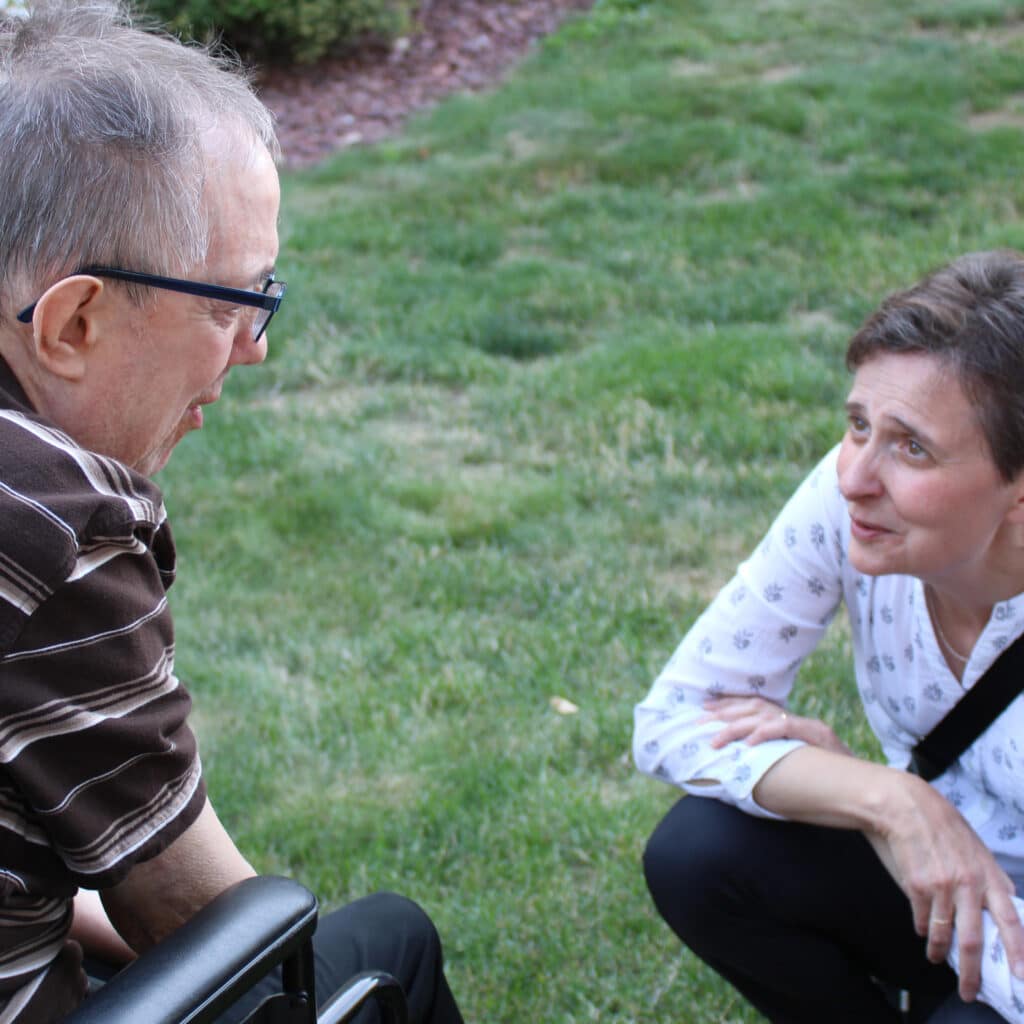
In 1975, the average life expectancy for individuals with developmental disabilities was just 30 years. Institutionalization was still common, and aging with dignity in a familiar home was not a reality for most. That same year, Home and Community Options (HCO) was founded with a bold, people-first vision—to create a community where individuals with developmental disabilities could live full, meaningful lives.
Fifty years later, that vision has not only endured—it has expanded. Thanks to medical advances, better social supports, and inclusive community living, many of the individuals we serve are now living into their 60s, 70s, and beyond. As their lives have grown longer, their needs have grown more complex. And HCO has grown right along with them.
Lifelong Homes, Lasting Relationships
At HCO, we embrace the philosophy of aging in place—the belief that people deserve to remain in the homes and communities they know and love, even as their needs change. This approach is especially critical for those with developmental disabilities, who often thrive in familiar environments with trusted staff and peers.
Unlike traditional care systems, which may transition aging individuals into nursing homes or institutional settings, whenever possible, HCO adapts our services and environments to help people remain at home. This is no small task. Aging brings new medical, behavioral, and emotional challenges—including dementia, mobility issues, and end-of-life needs. At the same time, we must consider the needs of other individuals in the home, ensuring that each person’s unique situation is thoughtfully balanced with the well-being of their housemates. But our commitment is unwavering: people deserve to age with dignity, surrounded by people who care.
Adapting for a New Chapter of Life
In the early days, our focus was often on helping individuals gain independence and life skills. Today, our services must also include hospice coordination, dementia care, and comprehensive health planning. As individuals live longer, we’re seeing a growing number who require advanced medical support—especially those who develop complex conditions like dementia.
But as their care needs increase, options outside HCO become fewer. In many cases, nursing home placement simply isn’t available. Facilities may lack the training or staffing to accommodate individuals with developmental disabilities, or they may not accept individuals with behavioral or communication differences. For others, long waitlists and a shrinking long-term care workforce mean that even medically appropriate placements aren’t accessible.
As both a home and healthcare provider, a role we’ve always embraced, the increasing health needs of the individuals we support have demanded even greater innovation, adaptation, and commitment. In response, we’ve hired a Health Services Director with geriatric expertise and equipped our team with dementia-specific training and telehealth tools for mental health care. These adaptations ensure that people continue to live in the homes they know, while receiving care that is tailored to their evolving needs.
Honoring the End of Life with Compassion
Perhaps one of the most meaningful shifts over the decades has been how we support individuals through the final chapter of life. In recent years, the need for hospice services has grown dramatically. We now partner with specialized hospice teams who understand the unique needs of individuals with developmental disabilities. Together, we ensure that end-of-life care is compassionate, respectful, and person-centered.
Looking Ahead with Heart and Purpose
Now in our 50th year, we carry the stories and lessons of five decades with us. We’ve seen firsthand the beauty of people aging in place—maintaining friendships, routines, and the small joys that make life meaningful. We’ve also seen the systemic gaps that still exist and the urgency of continued advocacy, planning, and support.
In the absence of adequate nursing home alternatives, HCO’s role has never been more vital. We are not just caregivers; we are stewards of lifelong homes, community inclusion, and the dignity every person deserves—at every stage of life.
From 1975 to today, we’ve walked alongside the individuals we support through childhood, adulthood, and now, aging. We will continue to do so—honoring their histories, adapting to their futures, and building a world where people of all abilities can live, age, and belong.
For a more in-depth look at crucial aspects of aging for individuals with developmental disabilities, including navigating medical care systems, understanding self-directed care, planning for end-of-life care, and comprehending hospice services, you can find our “Aging in Place” series on our website at www.hco.org.





